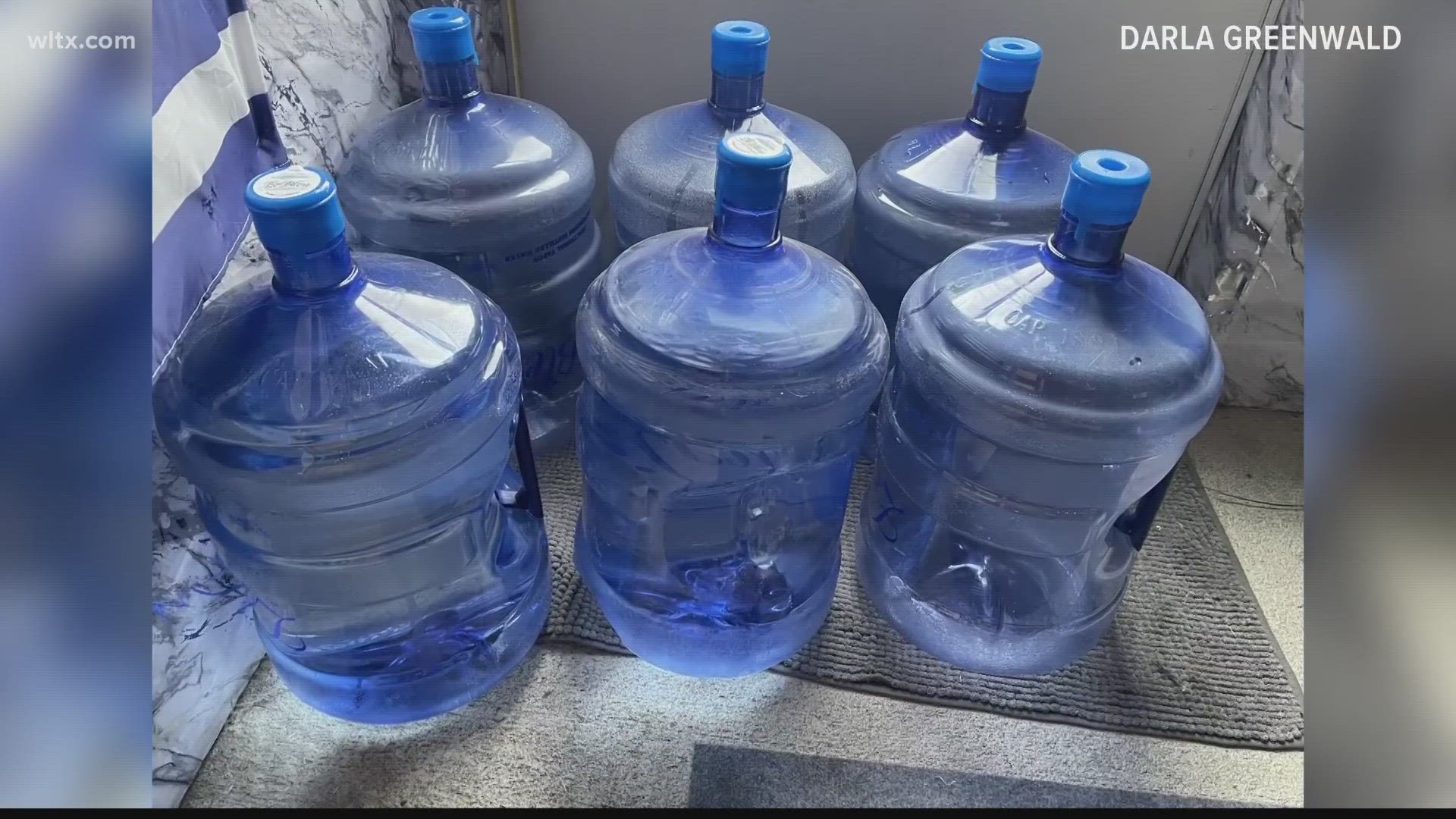CHERRYVALE, S.C. — If you live near Shaw Air Force Base, your groundwater might be contaminated. This contamination comes from past operations on the base and is now affecting the neighborhoods nearby. Those areas are getting bottled water delivered and might soon have new water systems installed.
"Yes, I am concerned to a certain extent because I don't know what Shaw Air Force Base has actually done to rectify the situation," Cherryvale resident Lyle Waddell said.
Waddell has lived in the neighborhood for over 50 years. Now, part of his community in Sumter County is seeing potential contamination due to its close proximity to Shaw.
"I do know that Shaw Air Force Base was supplying, especially the trailer park right there in front of Shaw Air Force Base, with drinking water because the wells did show signs of contamination," Waddell said.
The groundwater wells are now testing with levels of per– and polyfluoroalkyl substances (PFAS). These are man-made chemicals that affect the environment through impacted water and air.
"Anything like this that comes up you have to take it seriously," Ryan Bean with the Clemson Extension said.
Bean said these are “forever chemicals," which Shaw said were in firefighting foam that it used in previous operations in and around the base in the 1970s.
"The thing that they've got going on are these man-made substances that they’re referring to as these forever chemicals because they they don't break down and they stick around forever," Bean said. "And they've been used on everything from, you know, nonstick cooking pots to, you know, this firefighting foam and just about anything in between. So, they really are everywhere and they are indeed these forever chemicals."
In 2010, the Department of Defense started looking into bases that used this foam, according to a representative with Shaw.
In 2018, Shaw began trying to restore the environment and is now delivering bottled water to Cherryvale residents like Mary Metcalf.
"We get bottled water delivered every two weeks as much as we need," Metcalf said. "It's a pain but we're hoping that they will do something about it soon."
Shaw’s more permanent solution is to set residents up with High Hills Rural Water, a company based in Dalzell.
While this will provide clean water to residents like Metcalf, who has been utilizing her own well water since 1989 without any charges, she points out the solution also with a downside.
"Then, we'll start having a water bill that we haven't had before," she said.
Waddell said while he has a well, he’s been using High Hills Rural Water Company for years, paying the minimum each month of $33. His mother Alice also uses it for drinking and cooking.
"But I have my well for washing my clothes, washing my car and watering my plants and things outside," Alice said.
Alice said that while the PFAS might be in that water, she’s not particularly concerned.
"Not really because I'm still living at 92 years old!" she said.
PFAS currently aren't regulated. In March, the EPA proposed a standard (a maximum contaminant level), but it isn't finalized/established nationally and the EPA is still learning more about these chemicals. While states across the country await the EPA's finalized standard/MCL, DHEC has been, since 2020, implementing its own statewide strategies for studying the impacts of these chemicals in our state.
Shaw Air Force Base is holding a Restoration Advisory Board meeting at 6:30 p.m. on Monday. It will be at Patriot Park Pavilion to give the community an opportunity to discuss the situation.
The base said it has alerted residents whose water might be affected.
Those who live in the Cherryvale area and would like to get their water tested can contact Shaw at 20FWPublicAffairs@us.af.mil or the Department of Environmental Control.

